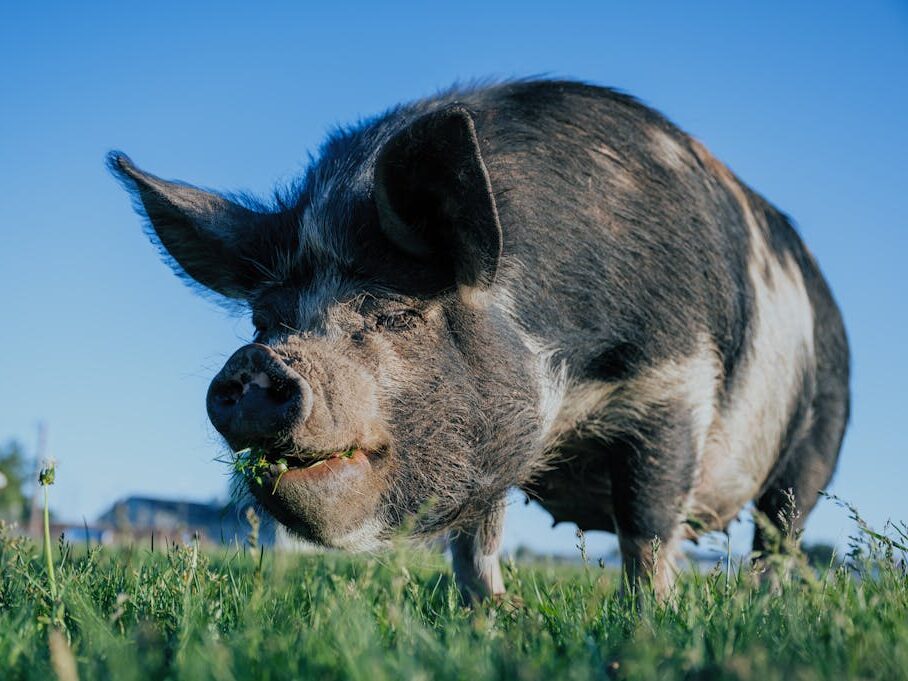
Pigs
From initial registering your pigs through to the final product packaging and labelling.
Updated 7 June 2024
Becoming a producer
Now that you have set up your pig herd, you must arrange essential registrations, insurances, and other administration before you can run a pig production business.
Land registration
To keep pigs, you must register your agricultural land and agricultural business with the Rural Payments and Inspections Division (RPID) even if you do not withdraw subsidies.
You must register within 30 days from the date you first keep pigs. It is free and requires basic information about your farm/croft.
Register your farm/croft with RPID online or complete this form.
You will get two numbers:
- Business Reference Number (BRN) for your agricultural business
- County Parish Holding (CPH) number for your land. You need this number to register your flock and report any movements of animals.
If you need help, contact your local RPID office.
Herd registration
Once you have your CPH number (see ‘Land registraion’), you must then register your herd with the Animal and Plant Health Agency (APHA).
Register your herd by contacting your local APHA office.
You will get a herdmark which is the identifier for all pigs born and kept on your farm. You will need the herdmark to buy tags for your pigs (see ‘Marking pigs’) and maintain a holding register (see ‘Keeping records’).
Feed business registration
If you sell pork, you must register as a feed business with Food Standards Scotland (FSS) to store and give your pigs animal feed. You can register as a feed business online, and it is free.
Setting up your business
If you earn more than £1,000 per year from agriculture including pig production, you need to register as a sole trader, or set up a business partnership or a limited company. You will also need to pay income tax on your profits and keep records. You might also want to draft a business plan to keep track of your accounts – this guide by the Landworkers’ Alliance is a good starting point.
Rural Payments and Services has an explainer of different types of farm businesses.
Registering as a food business
To sell pig meat – whether at farm gate, a farmers’ marker, or via retail – you need to register/get approved as a food business at least 28 days before you start trading.
The approvals you need depend on whether you cold store, repackage, cut and/or process meat at your croft/farm.
If you are unsure which requirements apply to you, contact your local authority’s environmental health team for advice. Find contact details for your local environmental health team.
If butchering elsewhere
If your pig carcasses are cut at a butcher’s shop and then sell them to customers, you are considered to be operating:
- A cold store, if you store meat in a fridge or a freezer at your farm/croft.
- A repackaging business, if you sort meat packaged by the butcher into containers (e.g., for customers in a meat box scheme). You must not open any wrapping to expose the meat.
Registering is free and you can do it via your local authority. Your local environmental health officer will come an inspect and approve your premises, which is a good opportunity to ask any questions and make sure you are compliant.
Useful resources:
- Guidance on temperature control legislation, Food Standards Agency
- ’Registering your business’, Food Standards Scotland
If butchering on farm/croft
If your pig carcasses are butchered at your farm/croft and you sell them to customers, you are considered to be operating:
- A meat cutting plant, if pigs are butchered at your premises
- A meat processing plant, if you make any processed products like sausages or cured meats
Apply for approval via Food Standards Scotland, who will also inspect and approve any cold stores you have. Processing your application currently has an hourly fee of £100.98 — read more about FSS charges.
To be approved, you will need to demonstrate compliance with various food safety regulations. FSS has published a Meat Industry Guide that advises you about your legal duties and how you can meet them.
Insurances
Getting a general liability insurance will cover other people getting injured because of your operations or produce, and you may consider income protection/personal accident insurances. Some insurers also offer specialist packages for smallholders.
Membership & assurance schemes
It can be helpful to register with a specific membership body for pig producers, like the National Pig Association, to keep up to date with the latest news and trainings.
You can also apply for assurance schemes/certifications, which come with additional requirements for keeping pigs and allow you to market their meat as meeting specific standards.
Some of the most prominent assurance schemes for pigs include: